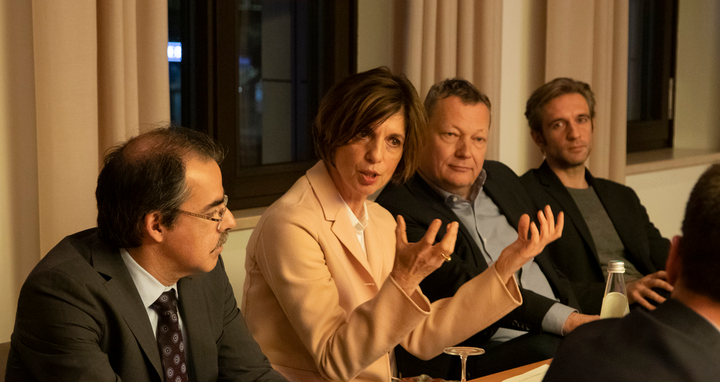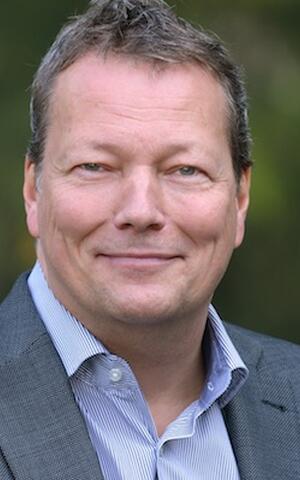Joining forces for the science metropolis
Thomas Sommer was chosen as founding coordinator for the section "Life Sciences".
The new network includes almost all non-university institutes and centers in the Berlin area. It is intended to facilitate coordination between non-university research institutions as well as to provide a central point of contact for cooperation with Berlin universities and for engagement with society and politics. Similar to the Berlin University Alliance (BUA) – the association of Freie Universität Berlin, Humboldt-Universität zu Berlin, Technische Universität Berlin, and Charité - Universitätsmedizin Berlin – BR 50 will also provide a dialogue platform for the participating institutions.
The association includes representatives from all areas of scientific research. At the inaugural meeting held on February 18, 2020 in the Max Liebermann Haus at the Brandenburg Gate, founding coordinators were chosen for the four sections: Professor Thomas Sommer for Section 1 (Life Sciences), Professor Jutta Allmendinger for Section 2 (Social Sciences and Humanities), Professor Ulrich Panne for Section 3 (Natural Sciences) and Professor Michael Hintermüller for Section 4 (Technology and Engineering).
An indispensable contribution to raising Berlin’s profile
“With their excellent research, these non-university institutions are already making an indispensable contribution to raising Berlin’s profile as a leading international science location,” says Thomas Sommer, founding coordinator of the Life Sciences Section and interim Scientific Director of the Max Delbrück Center for Molecular Medicine in the Helmholtz Association (MDC). “With BR 50, we are now joining forces to help Berlin flourish as a research hub.”
With BR 50, we are now joining forces to help Berlin flourish as a research hub.
Ulrich Panne, founding coordinator of the Natural Sciences Section and President of the Federal Institute for Materials Research and Testing (BAM), adds: “Dialogue between science, society and politics is becoming increasingly important, and BR 50 will facilitate this by building many important bridges between Berlin’s research institutions.”
Juta Allmendinger, founding coordinator of the Social Sciences and Humanities Section and President of the Berlin Social Science Center (WZB), also expects that BR 50 will strengthen cooperation between Berlin’s universities. “The large number and diversity of the city’s non-university research institutions is clearly one of Berlin’s strengths,” she says. “Our new association offers a central dialogue partner for Berlin’s universities, enabling us to initiate cutting-edge research projects together.”
Addressing the big challenges together
For Michael Hintermüller, founding coordinator of the Technology and Engineering Section, as well as Director of the Weierstrass Institute for Applied Analysis and Stochastics (WIAS) and Executive Board Spokesperson of the Forschungsverbund Berlin, one of the main incentives behind the creation of BR 50 is to address the great challenges that humanity is currently facing: “With this new association, Berlin’s research institutions can better utilize synergies in order to jointly develop solutions for the problems that lie ahead.”
At the inaugural meeting, an initial consortium of 41 of Berlin’s non-university research institutions came together, including institutes from major scientific organizations such as the Leibniz Association, the Max Planck Society, the Helmholtz Association and the Fraunhofer-Gesellschaft, as well as the federal government research institutes and the Prussian Cultural Heritage Foundation.
Contacts
Dr. Harald Wilkoszewski
Head of Information and Communication
Berlin Social Science Center (WZB)
harald.wilkoszewski@wzb.eu, +49 (0)30 25491 509
Jutta Kramm
Head of the Communications Department
Max Delbrück Center for Molecular Medicine in the Helmholtz Association (MDC)
jutta.kramm@mdc-berlin.de, +49 (0)30 9406 2140
Venio Quinque
Head of Communications
Federal Institute for Materials Research and Testing (BAM)
venio.quinque@bam.de, +49 (0)30 8104 1002
Anja Wirsing
Public Relations Officer
Forschungsverbund Berlin e.V.
wirsing@fv-berlin.de, +49 (0)30 6392 3337






